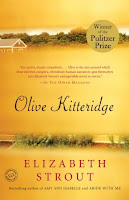 Ever since we did the Summer is Short – Read a Story promotion at work, I’ve had David Bezmozgis’s Natasha and Other Stories on my TBR pile. You can read one of the stories from the collection here, at the Globe, from when we expanded our promotion in their online books section. The stories are sparse but not sparing, swift without feeling rushed, and amazing portraits of a family in flux — immigrants new to Toronto managing to balance their lives on the cusp of old and new.
Ever since we did the Summer is Short – Read a Story promotion at work, I’ve had David Bezmozgis’s Natasha and Other Stories on my TBR pile. You can read one of the stories from the collection here, at the Globe, from when we expanded our promotion in their online books section. The stories are sparse but not sparing, swift without feeling rushed, and amazing portraits of a family in flux — immigrants new to Toronto managing to balance their lives on the cusp of old and new.
The collection contains seven linked stories and you simply fly threw them. His prose manages to get to the heart of the human condition without feeling preachy. In style, his writing reminds me a little of Alexander Hemon, although I couldn’t put my finger on why. The central characters in Bezmozgis’s stories, Bella, Roman and Mark Berman, are Russian Jews who have come to Canada from Latvia, leaving behind their home, their family (although by the end of the book many have migrated as well), and trying to make their way in Canada. I find these in-between stories, from the perspective of first generation immigrants, absolutely fascinating. There’s something about the in-between perspective that illuminates parts of Canada, of being Canadian, that those of us born here take for granted. I always liken it to the idea of speaking another language — it’s as if it’s a different world.
There are deep similarities between Victoria Day, Bezmozgis’s first feature film, which I also watched this weekend on TMN, and the stories. An only child, Mark (the stories) and Ben (the film) struggle with adolescence, balance parental expectations and eventually find a way to define themselves by being inclusive of everything they are. Victoria Day‘s more of a coming-of-age tale than is contained within the stories. The film resonated because I was a teenager then, and even remember the news stories surrounding the disappearance of Benji Hayward disappeared after a Pink Floyd concert. In the film, Ben loans his hockey teammate some money and then deals with his conflicted feelings once it surfaces that the teen too has gone missing.
 The movie has echoes of The Ice Storm and other atmospheric films about teenagers finding their way. Far, far less “teen” than say John Hughes (and I LOVE John Hughes — it’s a comparison point not a criticism), the picture manages to feel Canadian without the earnest-ness of so many of our native pictures (I did love One Week, but man, holy Canadian batman). There are moments of pure beauty within the film making — even if the performances feel a bit stiff at moments. Regardless, I very much like the ambiguity within the picture, something that Bezmozgis imbues in his fiction as well.
The movie has echoes of The Ice Storm and other atmospheric films about teenagers finding their way. Far, far less “teen” than say John Hughes (and I LOVE John Hughes — it’s a comparison point not a criticism), the picture manages to feel Canadian without the earnest-ness of so many of our native pictures (I did love One Week, but man, holy Canadian batman). There are moments of pure beauty within the film making — even if the performances feel a bit stiff at moments. Regardless, I very much like the ambiguity within the picture, something that Bezmozgis imbues in his fiction as well.
If I had to pick a favourite story, it would be the title tale, “Natasha.” But coming a close second would absolutely be “Minyan,” the story that closes the collection. Annywaay, I truly enjoyed my David Bezmozgis weekend, I’d highly recommend you give it a try, maybe next weekend?
READING CHALLENGES: I’m counting this towards this year’s Canadian Book Challenge. At some point I’ll tally up exactly where I am with this but there are other things to write at the moment.









